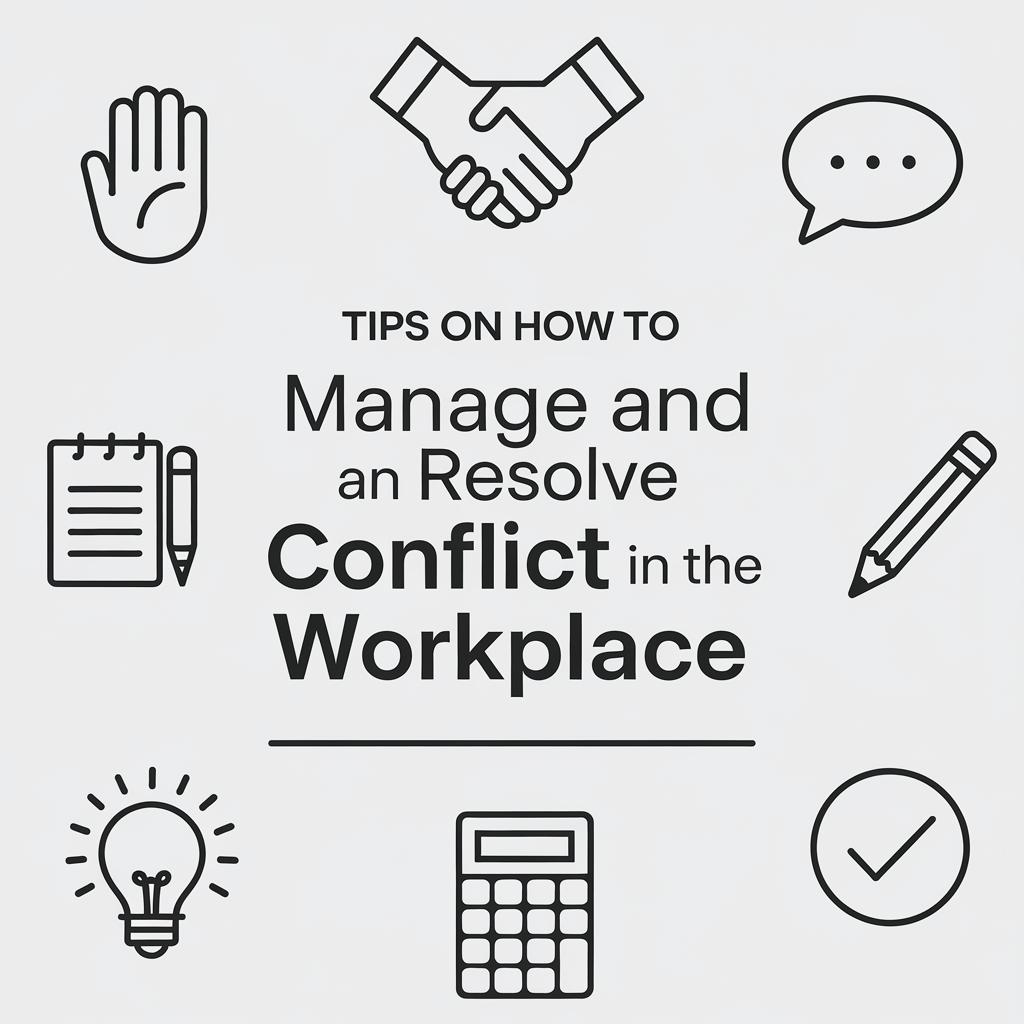Resolving Workplace Conflict: Strategies and Skills
Conflict in the workplace is an inevitable aspect of professional life, arising from diverse perspectives, personalities, and roles. This blog post delves into understanding why conflicts occur in work settings, highlighting essential conflict resolution skills every manager should possess. We will explore proven conflict resolution strategies that can facilitate smoother team dynamics and provide guidance on conflict management in our increasingly remote work environments. Lastly, we’ll look at proactive measures to avoid disputes before they manifest. Whether you’re a manager keen on honing your skills or an employee interested in fostering a collaborative atmosphere, these insights aim to equip you with practical tools to handle workplace challenges effectively.
Summary
Workplace conflicts are a common occurrence and handling them effectively is crucial for maintaining a productive and harmonious environment. This guide focuses on equipping managers with the necessary skills to address issues, employing effective strategies to resolve conflicts, and understanding the complexities of remote dynamics. By identifying the root causes of disagreements and deploying preventive measures, the potential for disputes can be minimized. These insights pave the way for a healthier work environment that enhances collaboration and productivity.
Why Do Workplace Conflicts Happen?
Conflicts can emerge in the workplace for numerous reasons, including personality clashes, competition for resources, and unclear role definitions. When team members have differing values or communication styles, friction can arise. Additionally, stress at work can amplify tensions, making it harder for people to collaborate effectively.
Another significant contributor to workplace conflict is organizational change. Whether it’s a shift in management or a restructuring process, changes can unsettle employees, leading to resistance and disagreements. Unaddressed employee grievances can also fester over time, causing simmering discontentment to explode into full-blown conflict.
What Conflict Resolution Skills Should a Manager Have?
Effective conflict resolution requires a specific skill set that includes active listening, empathy, and patience. Managers should cultivate these attributes, as they allow for understanding and addressing the needs and concerns of all parties involved. By genuinely listening, managers can gain insights into the underlying issues driving the conflict, which is essential for finding a resolution.
Additionally, problem-solving skills and the ability to remain neutral are critical. A manager should guide discussions in a manner that facilitates open communication and collaborative decision-making, all while maintaining an impartial standpoint. Through these skills, managers can foster an environment of trust and respect, while diffusing tensions.
What are the Top Conflict Resolution Strategies a Manager Can Use to Resolve Issues on a Team?
One effective conflict resolution strategy is to facilitate open dialogue between disputing parties. Encouraging open communication allows team members to express their perspectives and feelings without fear of retribution. It often leads to mutual understanding and can uncover solutions that satisfy all parties involved.
Another strategy is to establish common goals. By realigning team members’ focus on shared objectives, managers can unite previously conflicting individuals. Mediation is also a valuable strategy; a neutral third party can help guide discussions, ensuring they remain productive and focused on resolution.
How Can Conflict be Avoided?
Prevention is often better than cure when it comes to workplace conflict. Clear communication from the onset regarding roles, responsibilities, and expectations can preclude misunderstandings. Regular check-ins and feedback sessions can help address potential issues before they escalate into conflicts.
Fostering an organizational culture that values diversity and inclusion can also mitigate conflict. When team members feel valued and understood, they’re less likely to engage in destructive behaviors. Encouraging team-building activities can strengthen relationships and build trust, establishing a foundation where conflicts are less likely to arise.
How Can You Manage Conflict in Remote/Hybrid Environments?
Remote and hybrid work settings present unique challenges for conflict resolution, primarily due to the lack of face-to-face interactions. Managers must adapt by leveraging technology to facilitate communication, using video calls and chat platforms to maintain a personal connection. Regular virtual check-ins can bridge the gap and help identify brewing issues early on.
In remote settings, it is essential to set clear communication guidelines and channels. Ensuring that team members have a space to voice concerns and collaborate is crucial. Acknowledging and addressing time zone differences and work-life boundaries should also form part of this conflict management strategy, as negligence in these areas can lead to disputes.
About the Author
Phil is a seasoned literary enthusiast and professional book reviewer with a passion for uncovering and analyzing narratives across genres. Drawing from extensive experience within the realm of literature, Phil has developed a keen understanding of storytelling dynamics and character development, skills that seamlessly extend into dissecting and resolving conflicts in professional settings. He is actively engaged within the book community, hosting discussions and fostering a love for reading. Through his work, Phil aims to inspire others to embark on their own literary and professional journeys.
Future Prospects
| Aspect | Key Points |
|---|---|
| Summary | Understanding workplace conflicts and equipping managers with skills for resolution. |
| Causes | Personality clashes, unclear roles, organizational change. |
| Skills | Active listening, empathy, neutrality, problem-solving. |
| Strategies | Open dialogue, mediation, goal alignment. |
| Prevention | Clear communication, embrace diversity, team-building. |
| Remote Management | Use technology, establish guidelines, respect boundaries. |


